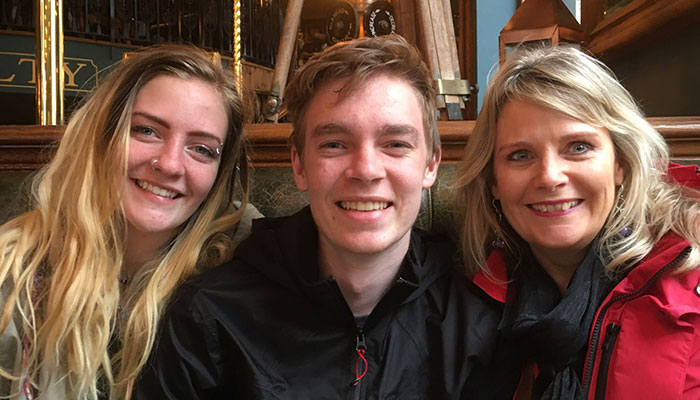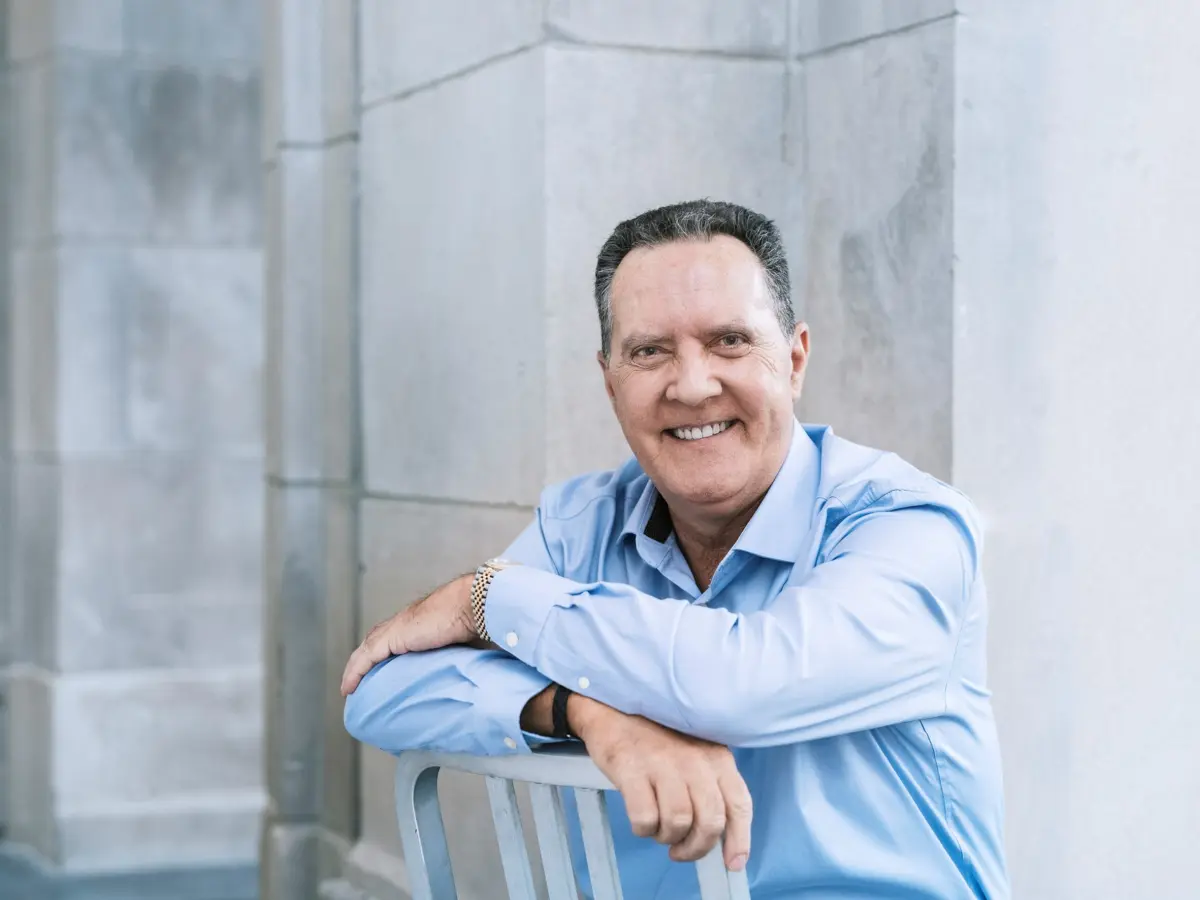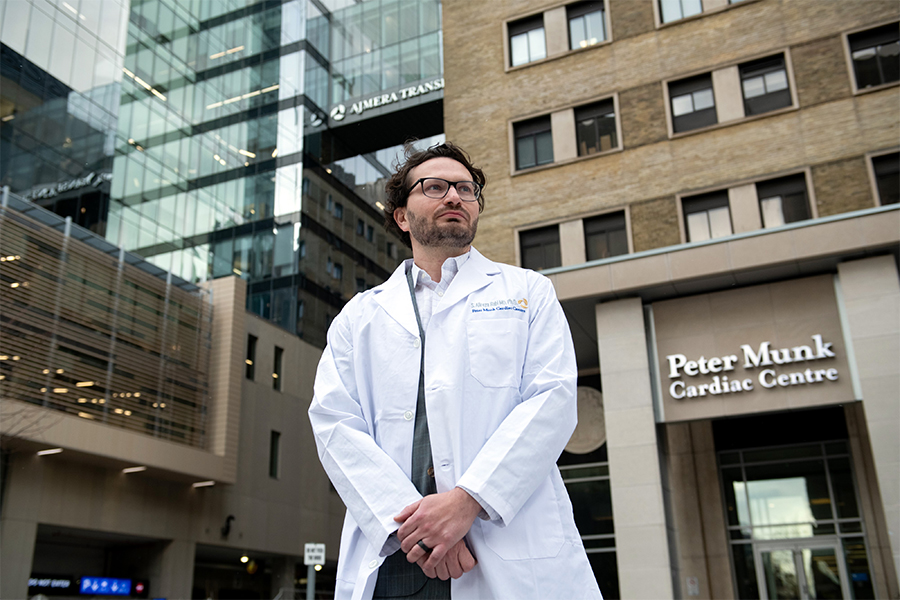
Andrea Norgate (R) with daughter Georgia, 17, and son Joey, 18. (Photo: Andrea Norgate)
News her 15-year-old son, Joey, was diagnosed with Type 1 diabetes was shattering for Andrea Norgate.
“It was a very bad day,” recalls Andrea, UHN Kidney/Pancreas Transplant Coordinator, quietly and softly. “The worst day of my life. I would have done anything to change my son’s diagnosis. But I could not. So I decided to turn something bad into something good.”
In 2015, Andrea donated her kidney anonymously as part of a living donor chain outside of Toronto. Andrea is blood type O, meaning she can donate to anyone.
As a result of Andrea’s decision, a stranger was able to receive a life-affirming gift: a living donation of a kidney from a mom wanting to make life better for someone struggling with kidney disease.
Kidney health for everyone everywhere
Today, March 14, is World Kidney Day. The theme is “Kidney Health for Everyone Everywhere.” The aim is to raise awareness about the importance of our kidneys, and how best to reduce the growing impact of kidney disease and its problems.
Kidney transplant is one treatment option for people facing kidney failure because it can increase a person’s chances of living a longer, healthier life.
As she thought about her reasons, Andrea knew that her son could develop kidney failure later on due to his diabetes. And she also knew that many others were in kidney failure now.
Diabetes is the leading cause of kidney disease in Canada, and the number of people living with kidney disease has grown 36 per cent since 2007.
“I just could not be buried with two healthy kidneys,” emphasizes Andrea. “We’re all walking around with spares, and there are so many others who need one. Any one of my patients would donate a kidney in a heartbeat, but they can’t. I can.”
After the surgery, she spent four days in hospital. Throughout the three weeks after discharge, she slept a lot – “like a cat”- and binge-watched the television series Breaking Bad.
She returned to work four weeks later.
Paying it forward
After Joey’s diagnosis, Andrea, with the support of her co-workers, redoubled her efforts to get the word out about what it means to be diagnosed with diabetes.
With her sassy smile and snappy comebacks for her co-workers and patients, Andrea is a favourite amongst the many patients who have gone on to have a transplant after learning how successful a kidney-pancreas or pancreas transplant can be.
She has spent 15 years educating hundreds of dialysis patients and staff about diabetes, and how a transplant involving both the pancreas and kidney, or each separately, means that kidney dialysis and insulin therapy would no longer be needed, with a return to a more normal lifestyle.
One day, if her son does need a kidney transplant because of his illness, Andrea is confident that a living donor will step up to help.
She hopes that her gift shows everyone that living organ donation is a safe and possible option for those who want to pay it forward.
“I thought it was pretty cool,” says Joey, now 20, of Andrea’s gift. “I’m honoured that my mom donated because of me and her other patients. But she has always been patient-centred, and has always talked about how transplantation can change people’s lives. It was regular dinner conversation in our home.”
[su_note note_color=”#0077bf” text_color=”#FFFFFF” radius=”0″]Fast kidney facts:
- Diseases of the kidney are common in people with diabetes, with up to one-half showing signs of kidney damage in their lifetime.
- Kidney disease can be a devastating complication, as it is linked to significant reductions in both length and quality of life.
- One in 10 Canadians has kidney disease, and millions more are at risk.
- Nearly 77 per cent of the 4,500 Canadians on the waiting list for an organ transplant, are waiting for a kidney.
- Of the people on dialysis, 16 per cent are on the waiting list for a transplant.
- On average, kidney patients wait four years or more for a deceased-donor kidney transplant.
- About 40 per cent of kidney transplants are made possible by living donors.
- More than half of living donors are unrelated to one another.
- The UHN Transplant Program each year performs:
- More than 200 kidney transplants, with more than 60 of them being living donor kidney transplants.
- An additional 40-50 kidney-pancreas transplants make this the largest kidney transplant program in Canada, as well as the largest pancreas transplant program in Canada.
- UHN Centre for Living Organ Donation within UHN’s Transplant Program is setting the gold standard in discoveries, treatment, and care for patients with end-stage kidney and liver disease who receive the gift of living donation.
[/su_note]


